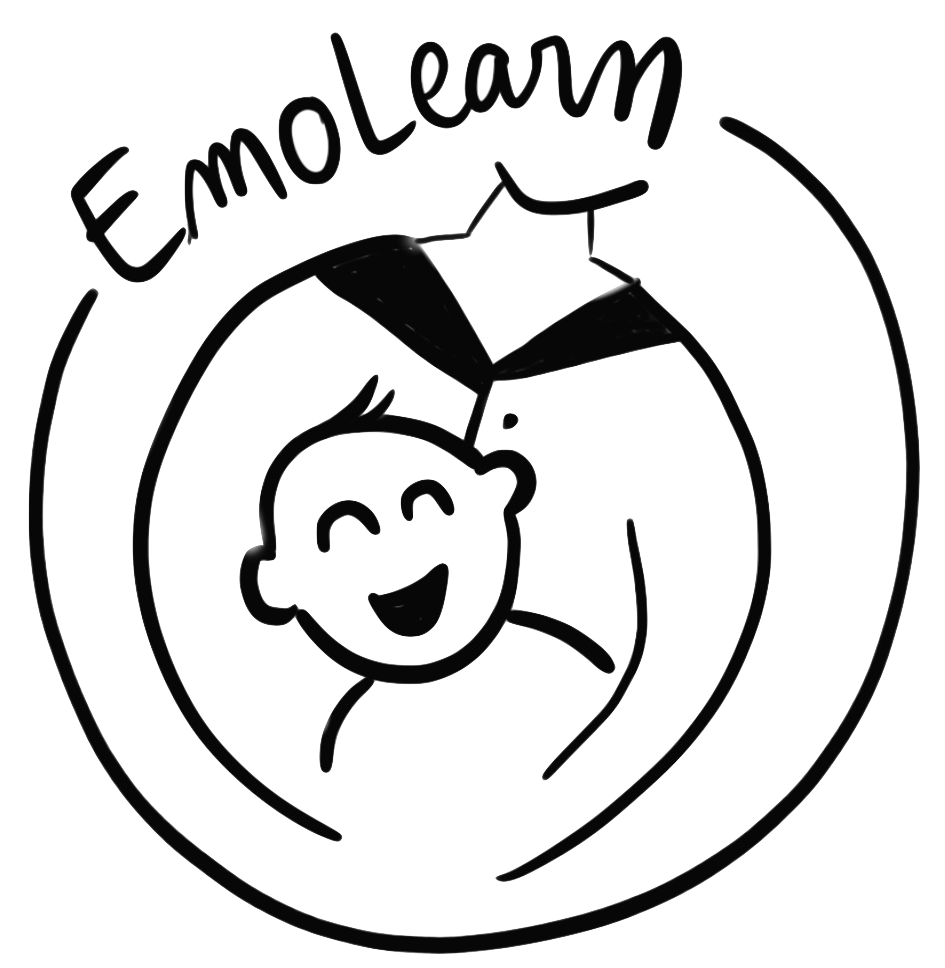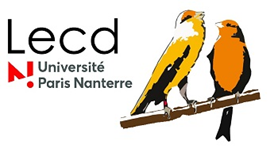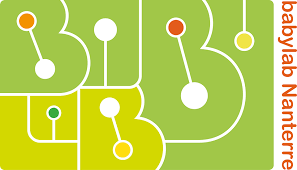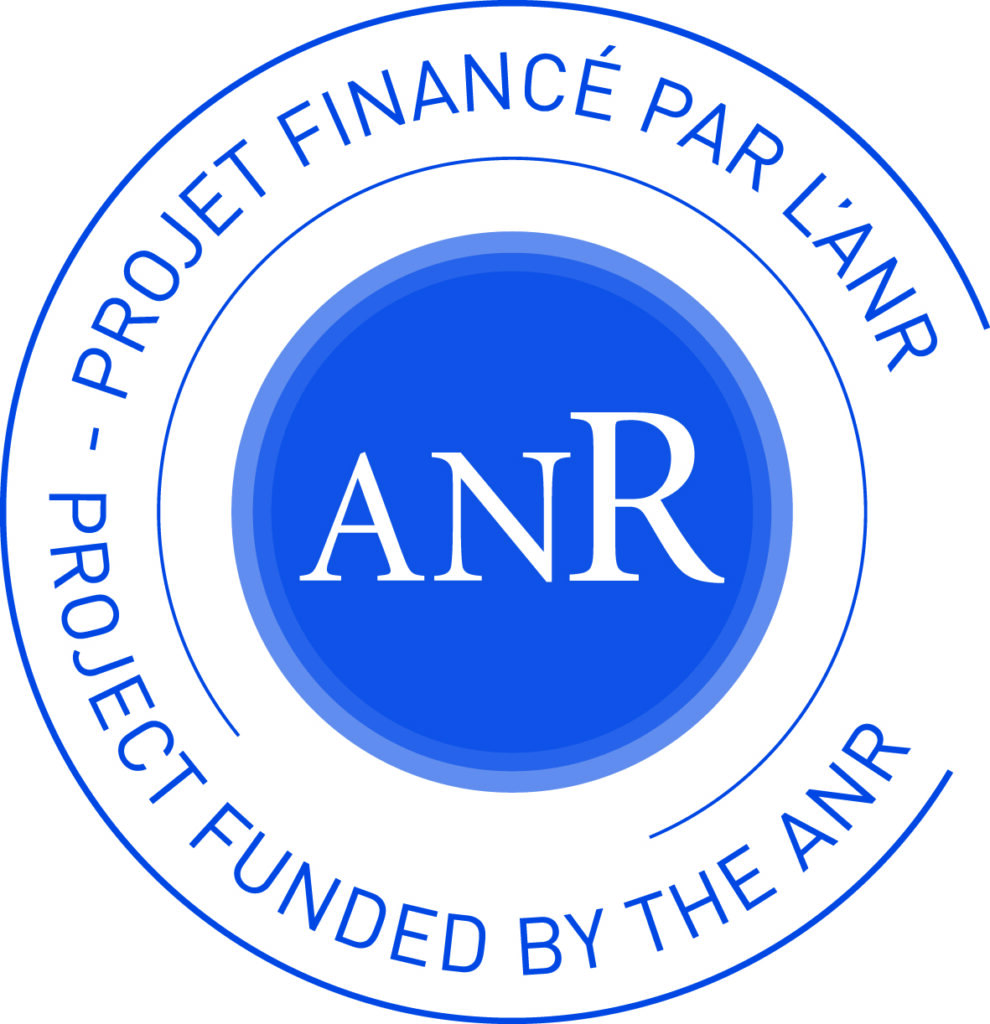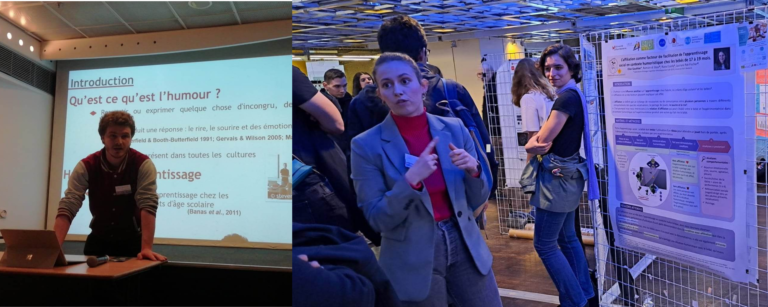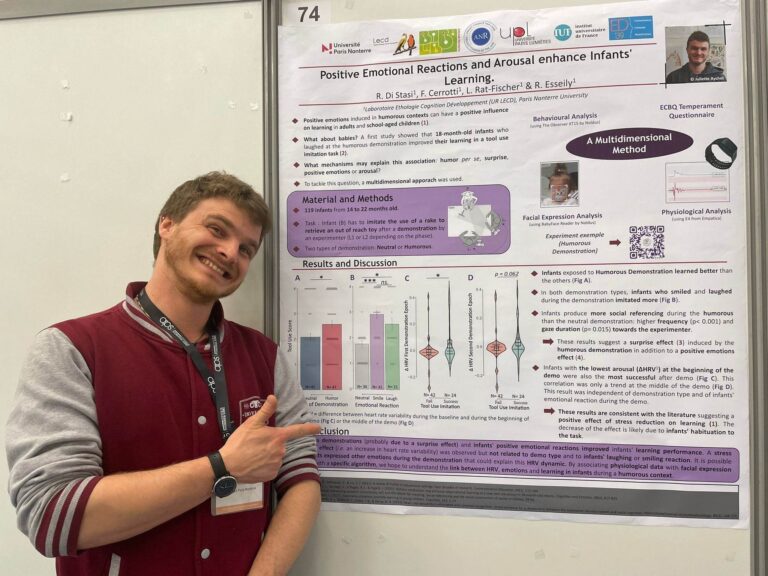The effect of humour on social learning in infants in a tool use task
Par R. Di Stasi, R. Esseily, A. Fakhri & L. Rat-Fischer
Laboratoire Éthologie Cognition Développement (UR LECD), Université Paris Nanterre
Humour has a positive effect on learning in adults and children(1).
What about infants? =>They perceive humour around 5 month of age(2).
Our team investigated the effect of humour on social learning in 18-
month-old infants(3). They had to retrieve an out of reach toy using a
tool like object after demonstration by an experimenter.
Humour has a positive effect on learning in adults and children(1).
Our team investigated the effect of humour on social learning in 18-
month-old infants(3). They had to retrieve an out of reach toy using a
tool like object after demonstration by an experimenter.

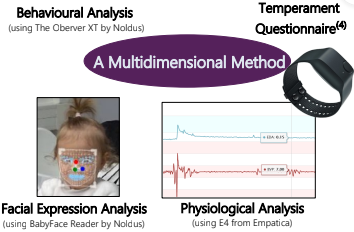
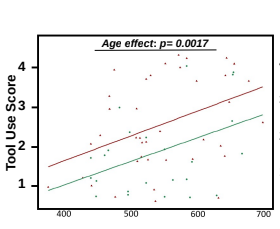
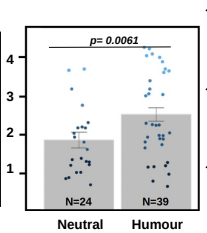

- Infants exposed to a humourous demonstration seem to learn better than infants exposed to a neutral demonstration regardless if they laughed or not.
- In contrast with Esseily et al.’s observations(3), infants who laughed did not learn any better than other infants exposed to a humorous demonstration.
- The testing conditions (i.e., testing at home, wearing the mask, etc.) may haveinfluenced infants’ behaviour towards a better learning performance than in ourprevious study in non-laughing infants.
- Surprise induces better retention of information and learning (4,5) One explanation for the observed effect in the humorous demonstration may be the surprise effect created by the humour events.
Conclusion and futures directions
Bibliograhy
| (1) Banas, J. A., Dunbar, N., Rodriguez, D., & Liu, S. J. (2011). A review of humor in educational settings: Four decades of research. Communication Education, 60(1), 115-144. (2) Mireault, G. C., & Reddy, V. (2016). Humor in infants: developmental and psychological perspectives. Cham, Switzerland: Springer. Chapter 2, 11-21 (3) Esseily, R., Rat-Fischer, L., Somogyi, E., O’Regan, K. J., & Fagard, J. (2016). Humour production may enhance observational learning of a new tool-use action in 18-month-old infants. Cognition and Emotion 30(4), 817-825. (4) Murayama, K., FitzGibbon, L., & Sakaki, M. (2019). Process account of curiosity and interest: A reward-learning perspective. Educational Psychology Review, 31(4), 875-895. (5) Stahl, A. E., & Feigenson, L. (2017). Expectancy violations promote learning in young children. Cognition, 163, 1-14. |
